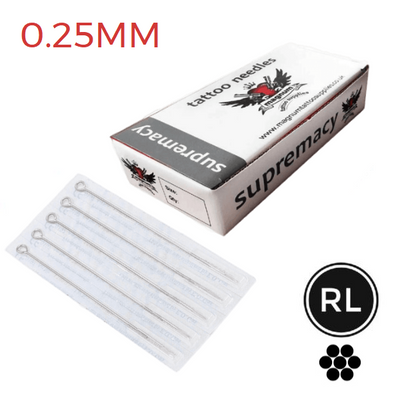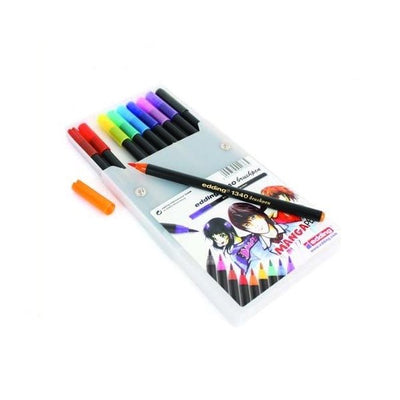Are you looking to make a mark in the world of body art? It can be hard to know where to start on your journey towards becoming a professional tattoo artist.
There are so many things you need to learn from developing your artistic abilities, mastering technical aspects, understanding safety protocols and more.
This blog is here to help all budding tattoo artists! We'll cover all the essentials of becoming a successful tattoo artist—from developing your artistic skillset and honing in on technical details, through learning about safety protocols and finding success in this rewarding career path. Let's get started!
What qualifications do tattoo artists need?
There are no formal qualifications required to become a tattoo artist. Nevertheless, individuals should develop their artistic flair and master technical aspects of the craft in order to become an established artist.

There are various routes available to become a successful tattoo artist. However, no matter the path you choose, a passion for the industry plus basic drawing skills or knowledge of graphic design are essential to success. Here are some common routes individuals pursue to kickstart their tattoo artist career:
Tattoo apprenticeships
Apprenticeships are highly regarded in the tattoo industry as they provide invaluable hands-on experience and mentorship. Aspiring tattoo artists can seek out established tattoo artists or a reputable tattoo shop offering apprenticeship programmes. Apprentices will start out assisting the artist and will progress to tattooing under supervision as their skills develop.
Tattoo courses
Enrolling in a college or a private tattoo course can provide a structured educational foundation. Like a tattoo apprenticeship, these courses cover essential topics such as hygiene practices, safety protocols, artistic techniques, and business aspects of running a tattoo studio.
Tattoo training courses can be conducted either in a face-to-face setting or through online platforms, offering flexibility for individuals interested in pursuing a career in tattoo artistry. However, it should be recognised that, while these courses provide valuable education and training, individuals will still need to gain experience in a registered tattoo shop.
Work experience
Gaining work experience in the tattoo industry is a great way to enter the field. Tattoo studios are always looking for reliable and motivated people who can help out with day-to-day operations, such as setting up appointments, running errands, or even painting flash designs. This type of experience also helps aspiring tattoo artists build connections in the industry.
For each of these options, you will likely be required to provide your own equipment. Be sure to purchase professional tattoo equipment like a high-quality tattoo machine, needles, inks, and other supplies that meet industry standards. Practice skin is popular among tattoo artists and allows you to practise skills without putting someone's skin at risk.
How to become a tattoo artist: licenses & regulations
Tattoo, piercing, and electrolysis license
It is important to understand the regulations and licensing requirements related to tattooing in your area. Tattoo artists must receive a tattoo, piercing, and electrolysis license from their local council. If you're opening your own tattoo studio, that must also be covered by the license.
After obtaining a license, tattoo artists must display a copy of their certificate in a prominent place on their premises. Failure to do so could result in fines.
Health and safety regulations
It is also the responsibility of tattoo artists to ensure their studio adheres to all health and safety regulations. This includes cleaning, sterilising and disposing of needles correctly, as well as wearing protective clothing and gloves at all times.

It's crucial to keep up-to-date with the regulations and laws in your area to ensure you stay compliant. Keeping your premises and equipment up to scratch not only ensures a safe and hygienic environment but also helps you maintain a good reputation and demonstrates a commitment to providing a quality tattoo service.
Insurance
Lastly, tattoo artists should ensure they are properly covered with adequate insurance policies. This is especially important for those running their own shops and will protect you in the event of any legal issues or other unexpected costs.
Having professional liability insurance in place can provide valuable protection for tattoo artists in the event of mistakes or issues that may result in a lawsuit. The insurance coverage serves as a safeguard, offering financial assistance and legal support to address potential claims and mitigate any potential financial burden on the tattoo artist.
Developing your own style as a tattoo artist
In the business of tattooing, there are many different tattoo styles to work in. Whether it's realism, new school, traditional or blackwork – exploring different techniques and styles can help you find the right niche for yourself as a tattoo artist.
The process of honing in on a signature style is ongoing. To become a master of any style takes time and dedication. Keep practising, studying, and exploring different techniques to find what works best for you—be it colour, shading or line work.
Ultimately, developing your own style not only helps you on your journey to becoming an established tattoo artist but also attracts clients who resonate with your particular creative vision.
Curating a portfolio
Tattoo artists should create a strong portfolio of their own artwork that showcases the quality of their work. It's important to include only your best designs in your portfolio, as this is often one of the first things potential customers will look at when selecting an artist for their body art.
Your portfolio should be regularly updated with new artwork to demonstrate your artistic growth and evolution as a tattoo artist. It can also provide inspiration for customers looking for their next design.
Many tattoo artists use social media to host their digital portfolio, rather than build a website themselves, allowing potential clients to easily view their work and contact them.
Marketing yourself as an artist and build a client base
Once you're confident in your skills and have a portfolio showcasing the quality of your work, it's important to start marketing yourself and building up a client base.
Most popular tattoo artists use social media to spread the word about their services as an artist and reach potential customers. You can also join tattoo-related forums or industry networks to help grow your contact list.

Finally, word-of-mouth is key when it comes to attracting new clients. Creating a stellar customer experience and building relationships with your customers can be a great way to ensure they come back for more ink or recommend you to friends and family.
Designing a business plan
Having a well-thought-out business plan is essential for tattoo artists looking to open their own studio. Your plan should include defining your target market, setting financial goals, and outlining marketing strategies. It's also important to research the competition in your area and determine how you can differentiate yourself from them.
You should account for any costs associated with running a successful business, such as purchasing supplies, advertising, and paying staff. It's important to have a good understanding of the financial side as this will help you identify any potential issues that may arise in the future.
How to become a tattoo artist in the UK
All of our tips should help anybody wondering how to become a tattoo artist in the UK. While there is no one-size-fits-all approach, enjoying a successful tattoo artist career requires skill, dedication, and an entrepreneurial mindset.
From honing your artistic talent to designing a business plan and marketing yourself as an artist—it’s essential to put in the work to ensure success.
With the right combination of artistic creativity and professional savvy, you can make a name for yourself as a respected and successful tattoo artist. Just be sure to use professional tattoo equipment throughout your journey!



























































 Studio supplies
Studio supplies












 Power & batteries
Power & batteries








 Aftercare
Aftercare





















 Apprentice
Apprentice


 Piercing & jewellery
Piercing & jewellery







 PMU supplies
PMU supplies




 New arrivals
New arrivals
 Gift vouchers
Gift vouchers
 Shop all
Shop all















































